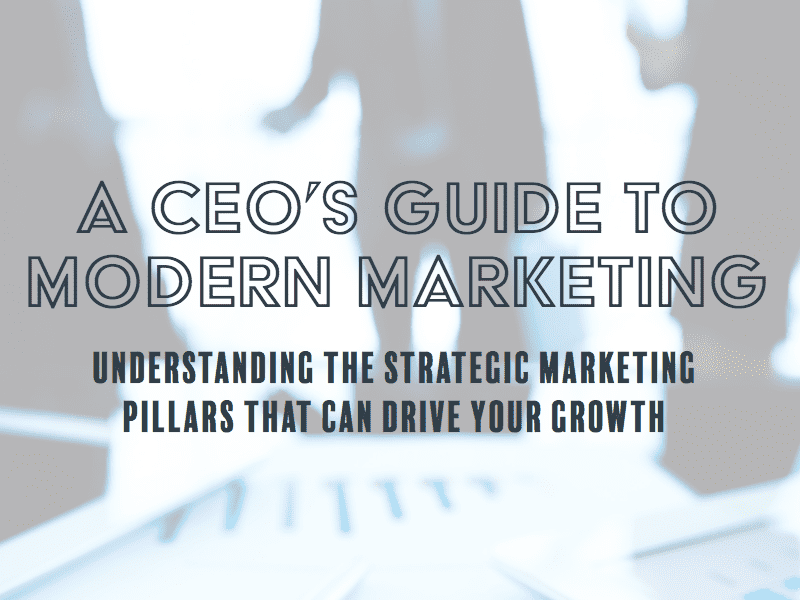It’s Time to Shift from Task-Based Marketing to Measurement-Based Marketing
At Company A, the head of marketing asks to meet with the CEO to discuss marketing plans for the coming year. He shows the CEO a long list of tasks his team completed last year, presents an even longer list of tasks for next year, and asks for more budget to increase head count.
At Company B, the head of marketing asks to meet with the CEO too. She shares data that demonstrates marketing’s contribution to the company’s 25% revenue growth, including the specific marketing channels, campaigns, and assets that had the greatest impact. She doesn’t ask for more head count, since the current (lean) team is well equipped to handle it all.
The difference between these two scenarios? Company A is engaged in task-based marketing, while Company B is engaged in measurement-based marketing.
Why Task-Based Marketing is Common
Many marketing organizations simply focus on getting tasks done—and that almost never yields results. As a CEO or other key decision maker, one of the most important first steps you can take to right the ship is to understand the most likely reasons your marketing organization is making this common mistake.
- You’ve inadvertently hired a team of do-ers, with no strategic marketers. And that’s not just a function of experience level or salary. Some of the most experienced, highly paid marketers operate tactically because they lack the playbook to engage in strategic, measurement-based marketing.
- You don’t have a strategic marketing plan in place. Marketing is only effective if it moves the needle on your business goals. And one of the greatest values of a strategic marketing plan is that it forces you to develop marketing goals aligned to your business goals. From there, you can develop Key Performance Indicators (KPIs) that serve as your mile markers, ensuring that marketing keeps moving in the right direction. (For tips on moving your strategic marketing planning forward, download our Executive Guide to Strategic Marketing Plans.)
- Your marketing team is reactive, not proactive. Many marketers spend their days responding to requests from the business to perform prescriptive tasks. It’s especially common in sales-oriented cultures, but it can happen anywhere. Since they don’t know which requests will move the needle on your goals, it’s tough to decide which tasks should make the list. (Conversely, it’s easy to prioritize when you have the data that shows what works and what doesn’t.) Meanwhile, strategic efforts that can make a measurable impact don’t move forward, simply because the team is too busy reacting.
- Your marketing team finds it easier to check off a task list than to engage with the business strategically. And that often goes back to hiring the right staff. Good marketers focus on driving impact, and they’ll do the hard work it takes to make that happen. Mediocre or poor marketers focus on “doing things,” and they default to the seemingly easier approach of crossing tasks off their list.
- Your leadership doesn’t expect marketing to contribute to the growth funnel or revenue. Some leaders underestimate marketing’s ability to move buyers through the funnel and grow revenue. That’s especially likely if they’re not well-versed in modern marketing. (To learn how this approach can drive revenue, download our CEO’s Guide to Modern Marketing.)
Why Task-based Marketing Doesn’t Work
It’s surprising that task-based marketing is so common, since it just doesn’t work.
When your marketing team is task-oriented, their efforts are scattered and arbitrary, rather than focused and strategic. They engage in busy work, completing tasks because “we’ve always done that” or “the sales team requested it.” They engage in work that doesn’t necessarily align with your business strategies or goals—or if it does, it’s not clear how. Ironically, the activities that work well often get short-changed.
Worse, task-based marketing gives you no basis to determine whether your efforts are working, or why, or what you should do more of, or fine-tune, or stop doing altogether. When you run a marathon, your definition of success may be as simple as finishing the race. Effective marketing is more complex, involving a set of integrated activities over time to drive a measurable return. It’s more complicated to measure success—leading tactical marketers back to the safety of their task lists. And sadly, task-based marketing causes those task lists to mushroom, creating a bloated marketing function that delivers little or no results.
One client came to Marketri after that very experience. The marketing team had grown to 12 people, including a CMO, a digital marketing director, two marketing managers, a project manager, a creative designer, and a lead writer, among others. (Whew!) But this big team was producing no measurable results. People got busier, so the company hired more people, but they weren’t contributing to achieving the business’s goals.
A Better Alternative
For companies that are serious about using marketing to drive revenue growth, measurement-based marketing is a far better approach. Measurement-based marketing aligns actions with the business’s strategies and goals and sets concrete metrics and expectations. It ensures you know what’s working and what isn’t, so you can adjust, optimize, test, and perfect. And if your measurement shows that something didn’t work, that serves the valuable purpose of freeing up time and budget to focus on work that will deliver a higher return.
Imagine the value in finding out that the content pieces on your website that attract the most eyeballs aren’t driving sales qualified leads that turn into new customers! Task-based marketing won’t tell you that. But measurement-based marketing will—guiding your team to build more of the right kind of content. It’s not just about measuring; it’s about measuring the right things.

Measurement-based marketing focuses your internal team, external resources, and budget on the strategic marketing efforts that will yield measurable results. And that enables marketers to earn the respect of C-suite executives who are metrics-driven. After all, marketing isn’t fluffy; it’s serious business, and when it’s done well, it’s taken seriously.
Most importantly, measurement-based marketing enables you to grow revenue and profitability more efficiently. When we’re hired to help a client develop an effective marketing department, we structure lean marketing teams that focus on what matters most. There’s no need for a big in-house payroll when your team is aligned with your strategies and goals, is engaging in the right efforts, and has the data to know what’s working.
For details on the steps to take to shift from task-based to measurement-based marketing, look for Part 2 in this series!
Ready to shift your organization’s focus from task-based marketing to measurement-based marketing? Schedule a free consultation with our CEO Deb Andrews.





